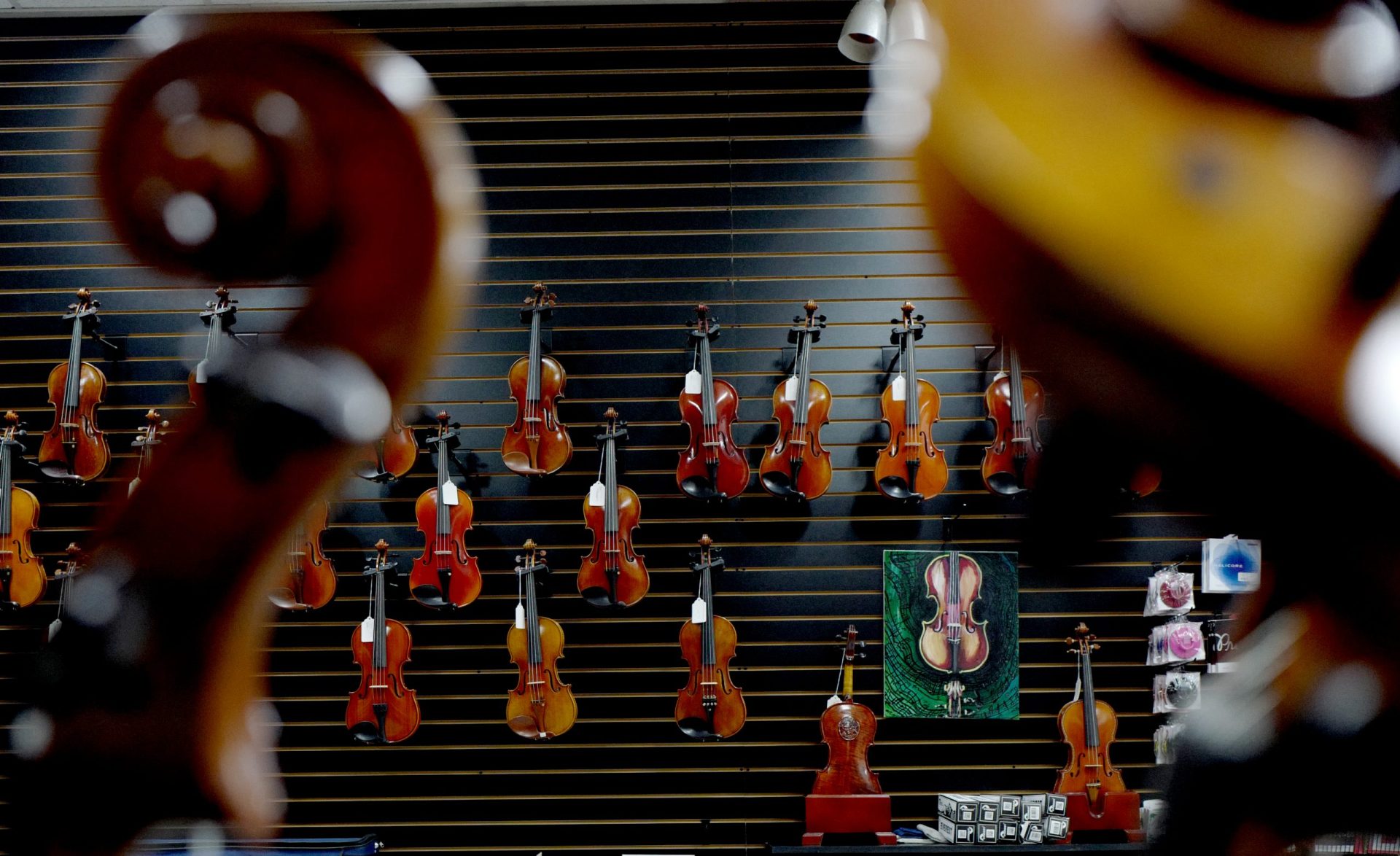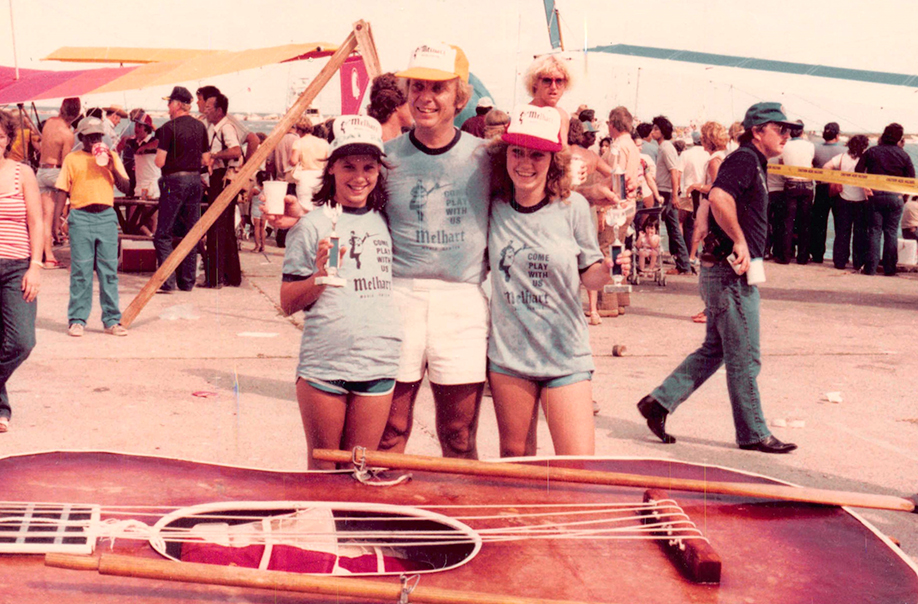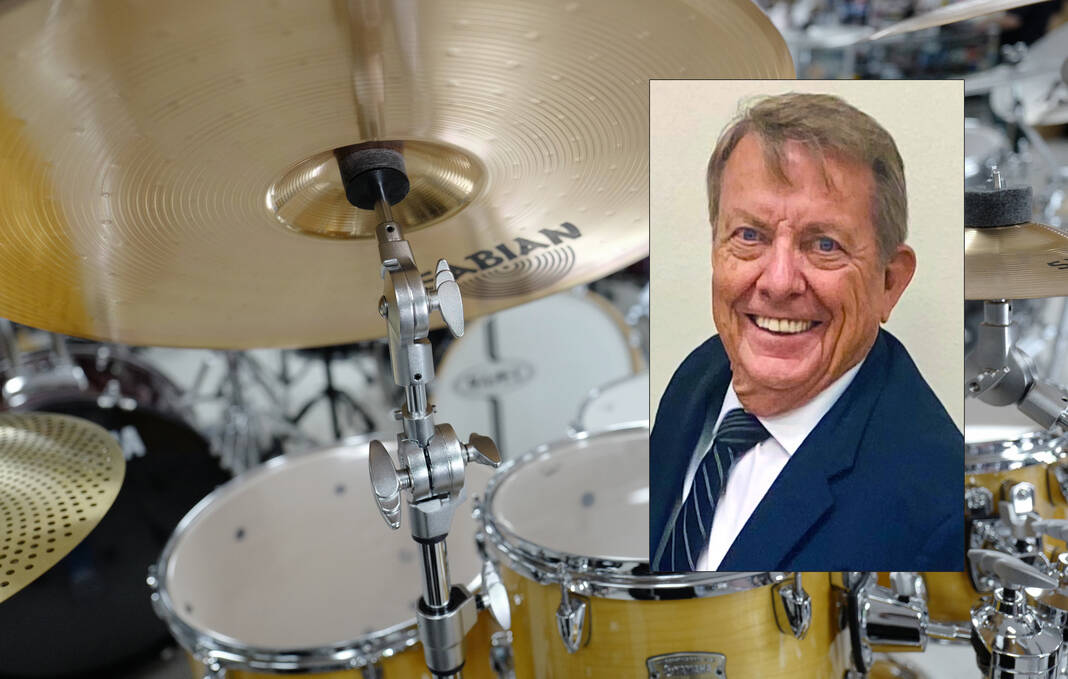
McALLEN — “Who’d be crazy enough to build a 50-foot guitar?” Jim Melhart said in 2004. Melhart, who died Saturday, was precisely that crazy and had just finished doing so when he said this to a reporter.
Jim Melhart did have some endeavors that were a touch eccentric, like his giant guitar and a navigable Ovation guitar-boat he once launched in a competition at South Padre Island. For the most part, though, Melhart was just plain crazy about people.
He was crazy about getting kids in the Rio Grande Valley the instruments they needed to play in bands and orchestras. He was crazy about his family, and about the people who worked at his store.
Melhart, who died at 78, was also crazy about what he could do with his business. The Corpus Christi-born instrument empresario was a bundle of creativity, compassion and sheer energy who spent the last 50 years turning Melhart Music in McAllen into a household name regionally and an internationally available brand.
The amount of people who learned how to play music on an instrument sold or manufactured by Melhart’s business is immense. In his latter days, at the hospital, people would come up to family members, telling them that they’d played in band or orchestra on an instrument they’d gotten from Melhart’s store.
“It’s a family legacy, making sure that there’s music in the world,” Melhart’s daughter, Tami said. “It’d be a sad place without it.”
It’s a sadder place without Melhart, or, at the very least, it’s a less interesting one.
Melhart started playing music when he was 7, and started playing drums professionally when he was 17, performing up to five nights a week while working as a shipping clerk, road representative and band instrument repairmen in Corpus Christi.
He drummed on Tony Joe White’s recording of Polk Salad Annie, Tami says, but he really found success as a purveyor of instruments, which was what his parents did. In 1969, he started his own piano and organ store with a $600 investment.
After spending a year driving his van down to McAllen from Corpus with instruments to sell every month, Melhart decided to stake a claim here, opening what would become Melhart Music Center in 1970.

Today, that business has its own store and factory, manufacturing more than 250 different products. It says it’s the number one band tower manufacturer in America, a success that’s largely the product of Melhart’s ingenuity and compassion.
Melhart was a musical mad scientist. An engineer and tinkerer at heart, he patented at least six music-related inventions.
An acoustic panel assembly. A lighted drum and related systems and methods. The folding marimba and the folding marimba having reduced length.
Melhart’s office was a warren of schematics and business documents and old photos, the residue of a life spent innovating.
“He was always coming up with things,” Melhart’s wife, Betty, said. “My Wylie Coyote kind of guy. He always thought he could build it bigger and better.”
Melhart was all passion, opening the doors after hours to get people what they needed from the shop. Betty was his lodestone: more business-focused and frequently wishing her husband would stop answering musicians’ calls at all hours of the night.
Melhart did answer those calls, though. He made himself and his instruments infinitely available to musicians.
“He would’ve given everything away if he could,” Betty said.

He didn’t give everything away, but Melhart did find ways to make sure kids in the Valley had a way to get an instrument to play, developing lease arrangements or working on the manufacturing side to make low-cost, quality instruments.
That optimism was infectious, intentionally so.
“His thing was, even on the telephone, he wanted us to smile, because he felt like the smile could go through the phone, like you could tell when a person is smiling,” Betty said. “So that was his big thing, that you always had a smile on your face.”
Melhart’s philosophy endeared him to local musicians, particularly to musical educators working at Valley school districts.
“He worked very closely with the band directors, and he would try to supply what they needed,” Bobby Garza, the band director at Nikki Rowe High, said. “And sometimes it’s tough, depending on the availability. But that’s what he’d try to do.”
Melhart would sponsor jazz festivals and Pigskin jubilees with products or money, Garza said. He had a penchant for lending equipment to a musician in a bind, and it was rare for a visitor to the store to leave without being able to afford what they were looking for.
“He did so many things for music, for music education,” Garza said. “He was every musician’s friend.”
Tami, Melhart’s daughter, says there was something more basic behind her father’s relationship with the community: integrity.

In 1984, when Melhart told people his company would be displaying the world’s biggest guitar at the South Texas Music Festival, a 47-foot Gibson.
They didn’t display that guitar. It burned in a factory fire 10 days before the festival.
Melhart and 12 employees got to work, building a 50-foot by 22-foot Gibson SG electric guitar, more than a ton of fiberglass and wood with stainless steel aircraft cables for strings. It was, nominally, playable, and it’s allegedly still tucked back in some corner of Melhart’s warehouse, disassembled.
Why do a rush-order build of what may still be the world’s biggest guitar? Tami says Melhart’s motivation wasn’t a gimmick or a marketing ploy or some kind of exercise in vanity. Melhart promised people something, she said, and he would not fall short of delivering. That was the kind of crazy he was.
“He was a man with integrity,” she said. “If he said it was going to happen and be there, it didn’t matter if they had to stay up for three days straight to get it done. He was gonna get it done.”




